Abstract
The WHO recommendation on essential drugs for cancer chemotherapy has been updated. General principles on the proper role of cancer chemotherapeutic agents in relation to efficacy and on the classification of tumours with respect to their curative potential are discussed. Curable cancers and those cancers where the cost-benefit ratio clearly favours drug treatment can be managed appropriately based on only 24 drugs. Fourteen of them should ideally be available for the treatment of the ten most common cancers, 8 others should be available only where the resources and facilities exist for the treatment of paediatric tumours and leukaemias, and two drugs were recommended for the treatment of tumours for which there is good evidence that systemic treatment will palliate symptoms but not substantially prolong survival. The adoption of these recommendations should result in considerable reduction in both the mortality and morbidity from cancer throughout the world.
Full text
PDF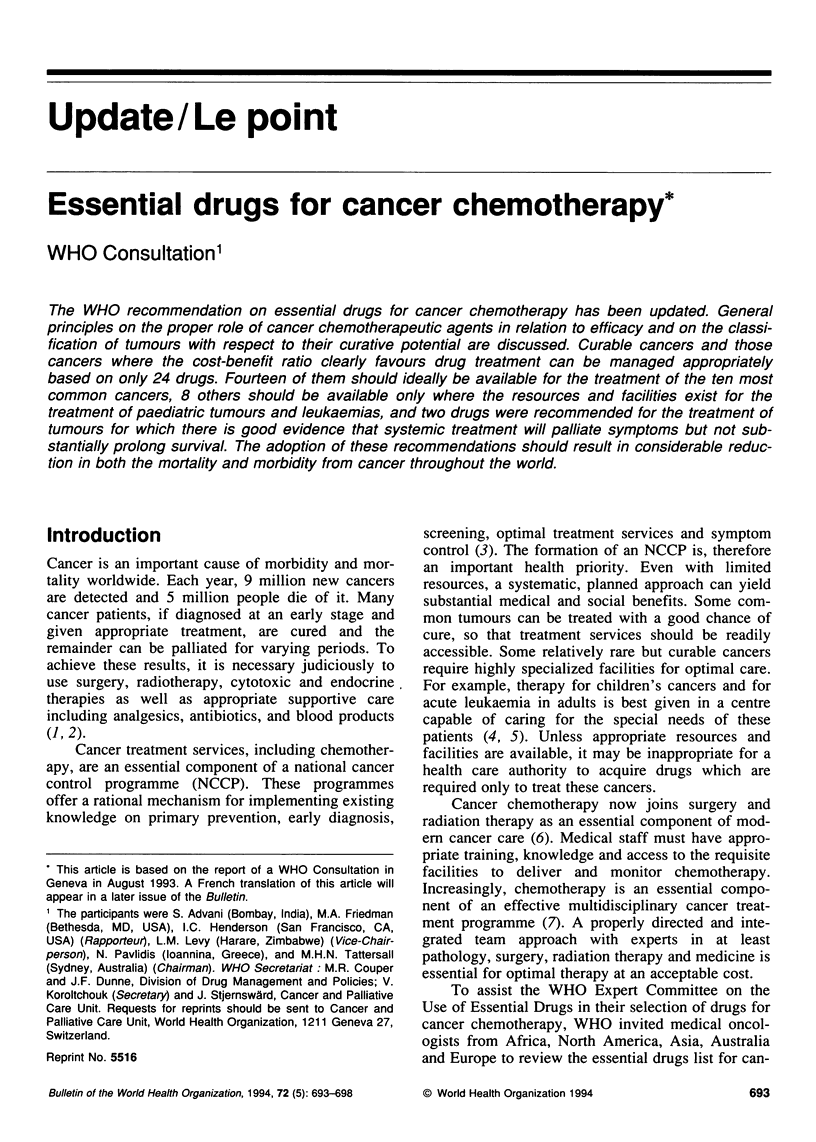
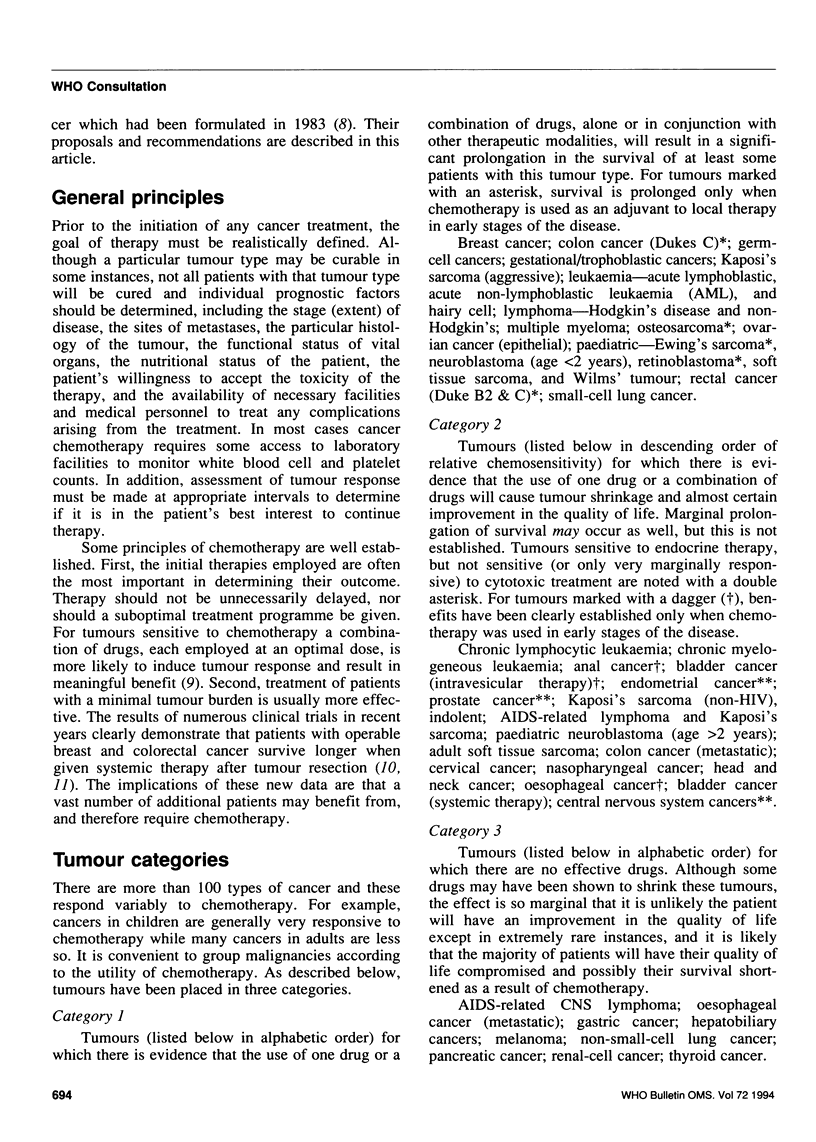
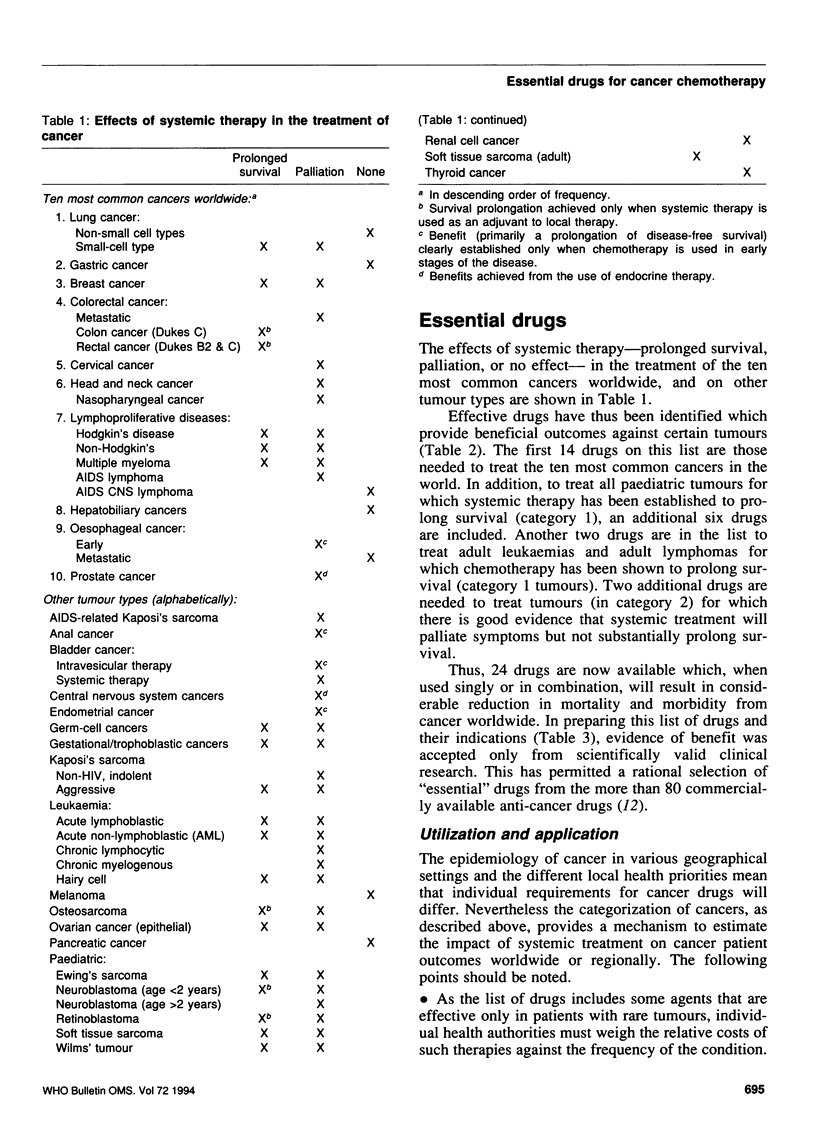
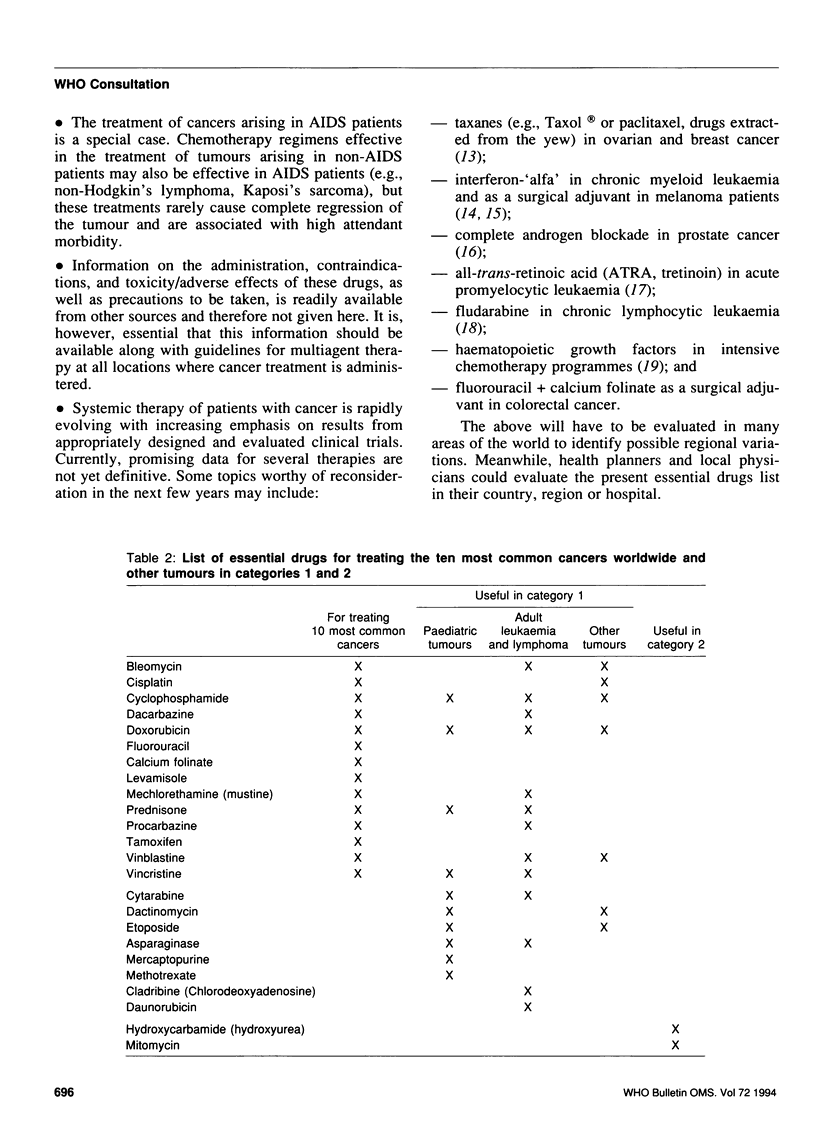
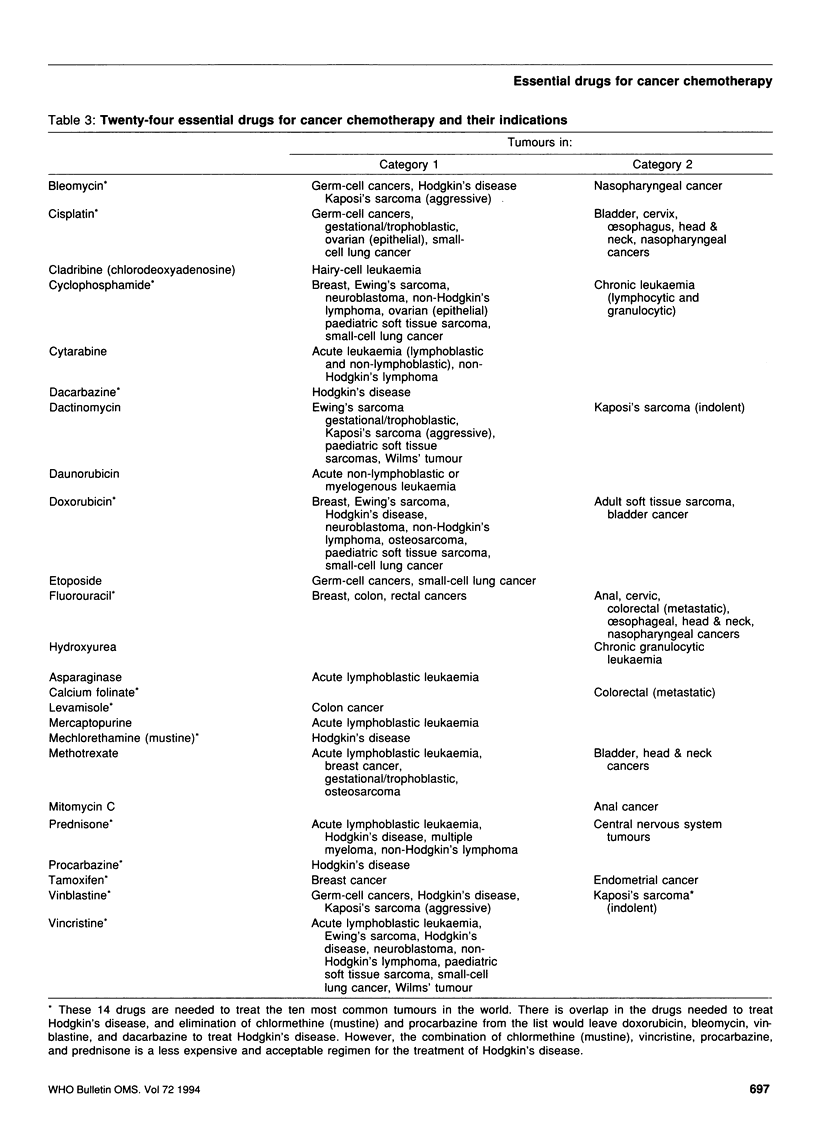
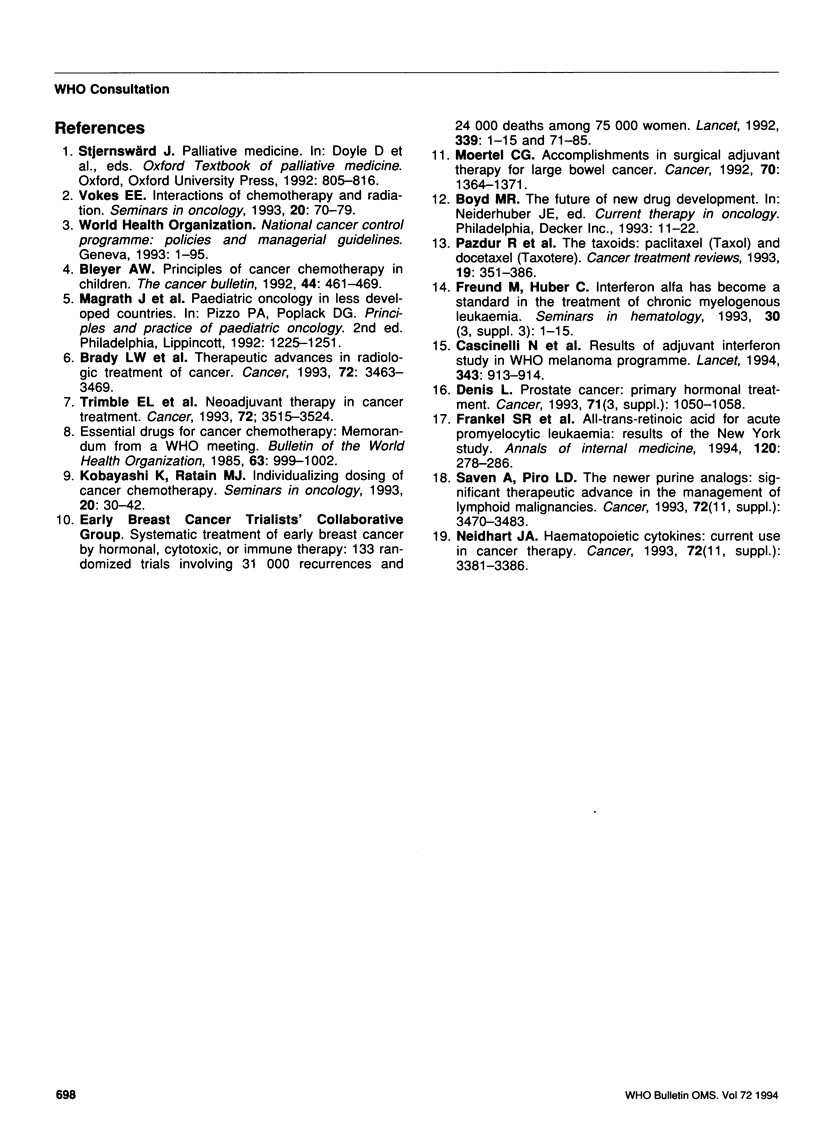
Selected References
These references are in PubMed. This may not be the complete list of references from this article.
- Brady L. W., Micaily B., Miyamoto C. T., Keit J. I., Mieszkalski G. B. Therapeutic advances in radiologic treatment of cancer. Cancer. 1993 Dec 1;72(11 Suppl):3463–3469. doi: 10.1002/1097-0142(19931201)72:11+<3463::aid-cncr2820721613>3.0.co;2-w. [DOI] [PubMed] [Google Scholar]
- Cascinelli N., Bufalino R., Morabito A., Mackie R. Results of adjuvant interferon study in WHO melanoma programme. Lancet. 1994 Apr 9;343(8902):913–914. doi: 10.1016/s0140-6736(94)90030-2. [DOI] [PubMed] [Google Scholar]
- Denis L. Prostate cancer. Primary hormonal treatment. Cancer. 1993 Feb 1;71(3 Suppl):1050–1058. doi: 10.1002/1097-0142(19930201)71:3+<1050::aid-cncr2820711425>3.0.co;2-#. [DOI] [PubMed] [Google Scholar]
- Kobayashi K., Ratain M. J. Individualizing dosing of cancer chemotherapy. Semin Oncol. 1993 Feb;20(1):30–42. [PubMed] [Google Scholar]
- Moertel C. G. Accomplishments in surgical adjuvant therapy for large bowel cancer. Cancer. 1992 Sep 1;70(5 Suppl):1364–1371. doi: 10.1002/1097-0142(19920901)70:3+<1364::aid-cncr2820701526>3.0.co;2-8. [DOI] [PubMed] [Google Scholar]
- Pazdur R., Kudelka A. P., Kavanagh J. J., Cohen P. R., Raber M. N. The taxoids: paclitaxel (Taxol) and docetaxel (Taxotere). Cancer Treat Rev. 1993 Oct;19(4):351–386. doi: 10.1016/0305-7372(93)90010-o. [DOI] [PubMed] [Google Scholar]
- Saven A., Piro L. D. The newer purine analogs. Significant therapeutic advance in the management of lymphoid malignancies. Cancer. 1993 Dec 1;72(11 Suppl):3470–3483. doi: 10.1002/1097-0142(19931201)72:11+<3470::aid-cncr2820721614>3.0.co;2-0. [DOI] [PubMed] [Google Scholar]
- Trimble E. L., Ungerleider R. S., Abrams J. A., Kaplan R. S., Feigal E. G., Smith M. A., Carter C. L., Friedman M. A. Neoadjuvant therapy in cancer treatment. Cancer. 1993 Dec 1;72(11 Suppl):3515–3524. doi: 10.1002/1097-0142(19931201)72:11+<3515::aid-cncr2820721619>3.0.co;2-a. [DOI] [PubMed] [Google Scholar]
- Vokes E. E. Interactions of chemotherapy and radiation. Semin Oncol. 1993 Feb;20(1):70–79. [PubMed] [Google Scholar]


